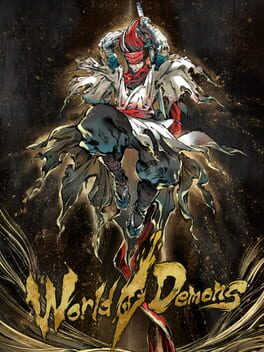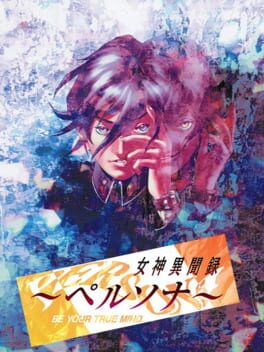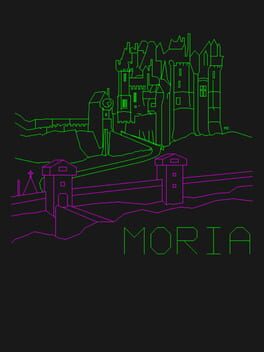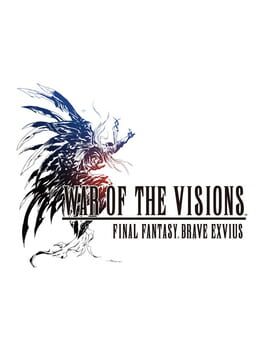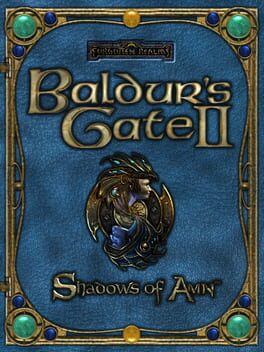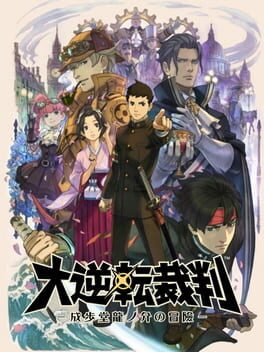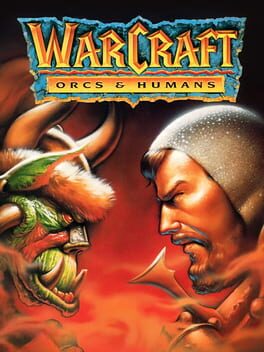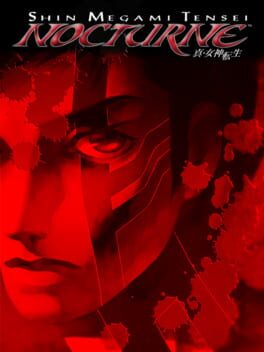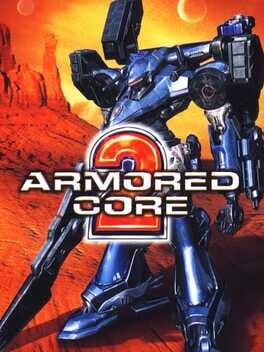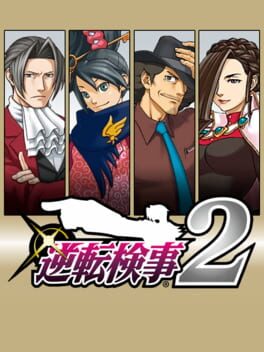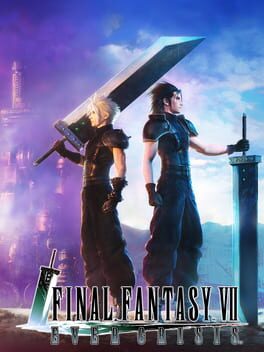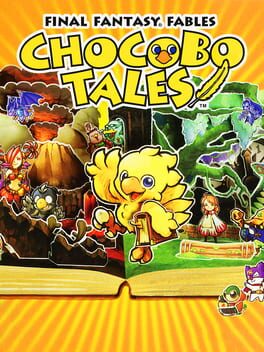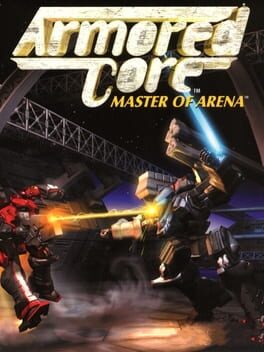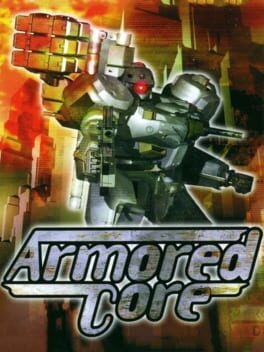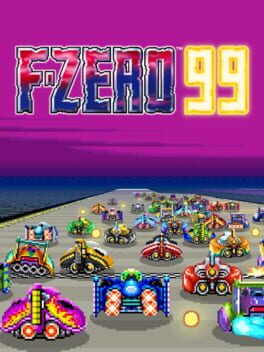DeviousJinjo
2021
At time of writing, World of Demons gets delisted from Apple Arcade tomorrow, January 18th, 2024. In February, it will be taken offline and be lost to time, like so many of today's games. In the case of World of Demons, this is no enormous tragedy, though it certainly is a perplexing end to an odd tale.
This was, quite obviously, meant to be a barebones freemium mobile game wherein the player would repeatedly farm upgrade materials from hyper-linear levels that are really nothing more than three or four battle nodes strung together in a line. You'd think that when the game was redesigned "from the ground up" this stuff would have been taken out, alas, the grind still seems to be here. The most important thing though is whether the grind is enjoyable. As far as these things go, World of Demons is alright. It looks great, runs well, it definitely has better action than Okami, and it at least tries to tuck a few secrets into its corners. I've had a nice time with it. I'm a particularly big fan of the yokai designs on display. It's a shame that the veneer of a fully polished Platinum character action game can't hold up for long. It's only a matter of time before the player figures out how bad the lock-on is, and things start going down from there.
Is World of Demons something that you should frantically scramble to play before it disappears? No, not really. It's kind of neat to look at though, and it does at least mostly FEEL like a Platinum game, even if it also feels like it was made as a training exercise for the junior crew, and even if it feels totally compromised by its very nature.
This was, quite obviously, meant to be a barebones freemium mobile game wherein the player would repeatedly farm upgrade materials from hyper-linear levels that are really nothing more than three or four battle nodes strung together in a line. You'd think that when the game was redesigned "from the ground up" this stuff would have been taken out, alas, the grind still seems to be here. The most important thing though is whether the grind is enjoyable. As far as these things go, World of Demons is alright. It looks great, runs well, it definitely has better action than Okami, and it at least tries to tuck a few secrets into its corners. I've had a nice time with it. I'm a particularly big fan of the yokai designs on display. It's a shame that the veneer of a fully polished Platinum character action game can't hold up for long. It's only a matter of time before the player figures out how bad the lock-on is, and things start going down from there.
Is World of Demons something that you should frantically scramble to play before it disappears? No, not really. It's kind of neat to look at though, and it does at least mostly FEEL like a Platinum game, even if it also feels like it was made as a training exercise for the junior crew, and even if it feels totally compromised by its very nature.
Like most of early SMT, Persona 1 is cool. It's trying a lot of bold, interesting stuff, and its aesthetic alone is enough to earn some positive attention. It's just too bad that the execution on all of those ideas always feels so clumsy.
For the record, I'm not talking about the appallingly localized PS1 version. I just tend to log everything under its original release so that when I sort things by release date my results come back the way I want them to and things don't get lost amid 30 versions of the same game.
Even on the PSP, Persona 1 is a slog, though that didn't really start killing me until about halfway through. For a good while, I was having a much better time than I expected. Partially that's because story developments are pretty frontloaded even on the SEBEC route, but really it's because I hadn't yet realized the gameplay's problems, nor the fact that they weren't going to go away.
Persona 1 has a million numbers for you to look at, and leverages them for a battle system that's so much shallower than it looks. There is a tactical grid in battles for the placement of area attacks and the determination of reach, but in practice the player almost never interacts with that grid in any interesting way. You set up your party's positioning near the start of the game and never change it. Resources are abundant and managing them is scarcely a concern. Persona fusion is crippled by the sky-high level requirements on recruiting most foes, and higher level personas eat so much SP and their stats are so often irrelevant in the face of other factors that players are likely to use the same personas across their party for giant stretches of time, and that so often reduces the system to something that's just kind of... there. Before long players are likely to be playing out every battle on auto (and PPSSPP's fast-forward) and seeing little to no punishment for it. The encounter rate is high, and many enemies are annoying, but the average encounter sparks no joy, and that's what one spends about 75% of Persona 1 doing.
I'll admit, I had heard some terrible things about Persona 1 and I had trepidations about playing it. I'm glad that I gave it an honest chance, because before the honeymoon was over I had a pretty good time.
Then the novelty wore off, and I was left with a bunch of unengaging, time-wasting encounters in mean-ass SMT dungeons keeping me from a story that is pretty neat for its time, but not enough to sustain the experience.
Update: I actually bailed before I noticed that you can skip the battle animations on PSP, which is enough to shoot it up a couple points all on its own. In addition to that, like, damn the Snow Queen route is so cool, and I really don't think I was giving it enough credit.
For the record, I'm not talking about the appallingly localized PS1 version. I just tend to log everything under its original release so that when I sort things by release date my results come back the way I want them to and things don't get lost amid 30 versions of the same game.
Even on the PSP, Persona 1 is a slog, though that didn't really start killing me until about halfway through. For a good while, I was having a much better time than I expected. Partially that's because story developments are pretty frontloaded even on the SEBEC route, but really it's because I hadn't yet realized the gameplay's problems, nor the fact that they weren't going to go away.
Persona 1 has a million numbers for you to look at, and leverages them for a battle system that's so much shallower than it looks. There is a tactical grid in battles for the placement of area attacks and the determination of reach, but in practice the player almost never interacts with that grid in any interesting way. You set up your party's positioning near the start of the game and never change it. Resources are abundant and managing them is scarcely a concern. Persona fusion is crippled by the sky-high level requirements on recruiting most foes, and higher level personas eat so much SP and their stats are so often irrelevant in the face of other factors that players are likely to use the same personas across their party for giant stretches of time, and that so often reduces the system to something that's just kind of... there. Before long players are likely to be playing out every battle on auto (and PPSSPP's fast-forward) and seeing little to no punishment for it. The encounter rate is high, and many enemies are annoying, but the average encounter sparks no joy, and that's what one spends about 75% of Persona 1 doing.
I'll admit, I had heard some terrible things about Persona 1 and I had trepidations about playing it. I'm glad that I gave it an honest chance, because before the honeymoon was over I had a pretty good time.
Then the novelty wore off, and I was left with a bunch of unengaging, time-wasting encounters in mean-ass SMT dungeons keeping me from a story that is pretty neat for its time, but not enough to sustain the experience.
Update: I actually bailed before I noticed that you can skip the battle animations on PSP, which is enough to shoot it up a couple points all on its own. In addition to that, like, damn the Snow Queen route is so cool, and I really don't think I was giving it enough credit.
1976
While dnd and Orthanc represent the more-or-less complete state of the first computerization of Dungeons and Dragons, Moria, developed in roughly the same year as the latter, represents its first ambitious departures. It uses its own stats and progression systems, and pushes the whole medium forward in ways almost unbelievable.
Moria, and I hope you're sitting for this, is multiplayer. It is one of the first Multi-User Dungeons, if not the ACTUAL first. Within a year of Gary Gygax putting down his pencil on the original edition of Dungeons and Dragons, these freaks had not only adapted it for computers, but had meaningfully deviated in ways so meaningful as to spawn an online procedurally generated MUD. Rogue, by the way, doesn't show up until 1980. Moria is so far ahead of its time that it's toying with genres that won't actually be feasible for another twenty years, and that's the kind of ambition that wins points around here. Of all the PLATO RPGs, with the possible exceptions of Avatar or Camelot, PLATO's later culminating MMO supergames. It is, in a single word, awesome.
Moria, and I hope you're sitting for this, is multiplayer. It is one of the first Multi-User Dungeons, if not the ACTUAL first. Within a year of Gary Gygax putting down his pencil on the original edition of Dungeons and Dragons, these freaks had not only adapted it for computers, but had meaningfully deviated in ways so meaningful as to spawn an online procedurally generated MUD. Rogue, by the way, doesn't show up until 1980. Moria is so far ahead of its time that it's toying with genres that won't actually be feasible for another twenty years, and that's the kind of ambition that wins points around here. Of all the PLATO RPGs, with the possible exceptions of Avatar or Camelot, PLATO's later culminating MMO supergames. It is, in a single word, awesome.
Baldur's Gate 2 makes Baldur's Gate 1 feel like a tutorial for itself. The tantalizing story that BG1 only truly bothered to touch in its final act at last comes to fruition in an adventure that keeps the audience compelled for their entire run, even if they pursue every sidequest.
BG1 isn't just a low-level campaign, it's a FIRST campaign, run by a junior DM who is so excited about the bare traditional essentials of Dungeons and Dragons that they reproduce every cliché without a shred of creativity, and bore experienced players to tears.
BG2 feels like it was produced a good ten years down that DM's personal timeline, after they've grown up, read some books, and gotten that newbie cringe all the way out of their system. In its writing and scenario design, it feels strikingly modern, or at least as modern as something like Pillars of Eternity can be. It's enough to make me wish that the actual game systems has received a similar overhaul.
It's not that the DM hasn't learned some lessons since BG1. There are far, far fewer enemies who instantly throw out interminable entangle and web spells, and thus at least the player's ears are spared their constant, deafening noise in most situations. That said, the late-game DOES suffer a cornucopia of wizards whipping out Time Stops and guzzling potions that essentially render them invincible. While I'd certainly give heavier consideration to playing Baldur's Gate 2 without Story Mode enabled, it still would not be what I would call a pleasant experience.
Even with the actual combat experience brushed aside, there are simply too many annoyances with the interfacial experience of BG1 and 2 for the topic to go unraised. Innumerable are the times that I have been unable to recognize that I can interact with an object, and after pixel hunting, when I do have this realization and make my clicks, I'm met only with "You're too far away." I sigh, select my individual character, and move him out of formation. Similarly numerous are the times I simply could not see a staircase or could not find a key for a lock that my thief should be able to pick anyway. Even when bypassing the combat and RPG systems, I encountered plenty of irritations.
Be that as it may, after opting out of about 90% of BG1's side content, I did virtually every sidequest in Baldur's Gate 2, and had fun doing it. It makes me long for a big-budget, honest-to-god remake of both of these games, but as things stand, Baldur's Gate 2 is a great experience hamstrung mostly by age and circumstance. I'm glad I cruised through BG1 to get to it, but I don't expect to be revisiting either any time soon.
BG1 isn't just a low-level campaign, it's a FIRST campaign, run by a junior DM who is so excited about the bare traditional essentials of Dungeons and Dragons that they reproduce every cliché without a shred of creativity, and bore experienced players to tears.
BG2 feels like it was produced a good ten years down that DM's personal timeline, after they've grown up, read some books, and gotten that newbie cringe all the way out of their system. In its writing and scenario design, it feels strikingly modern, or at least as modern as something like Pillars of Eternity can be. It's enough to make me wish that the actual game systems has received a similar overhaul.
It's not that the DM hasn't learned some lessons since BG1. There are far, far fewer enemies who instantly throw out interminable entangle and web spells, and thus at least the player's ears are spared their constant, deafening noise in most situations. That said, the late-game DOES suffer a cornucopia of wizards whipping out Time Stops and guzzling potions that essentially render them invincible. While I'd certainly give heavier consideration to playing Baldur's Gate 2 without Story Mode enabled, it still would not be what I would call a pleasant experience.
Even with the actual combat experience brushed aside, there are simply too many annoyances with the interfacial experience of BG1 and 2 for the topic to go unraised. Innumerable are the times that I have been unable to recognize that I can interact with an object, and after pixel hunting, when I do have this realization and make my clicks, I'm met only with "You're too far away." I sigh, select my individual character, and move him out of formation. Similarly numerous are the times I simply could not see a staircase or could not find a key for a lock that my thief should be able to pick anyway. Even when bypassing the combat and RPG systems, I encountered plenty of irritations.
Be that as it may, after opting out of about 90% of BG1's side content, I did virtually every sidequest in Baldur's Gate 2, and had fun doing it. It makes me long for a big-budget, honest-to-god remake of both of these games, but as things stand, Baldur's Gate 2 is a great experience hamstrung mostly by age and circumstance. I'm glad I cruised through BG1 to get to it, but I don't expect to be revisiting either any time soon.
Consistently good and lovingly crafted, but not quite the grand slam that it could've been. GAA1 opens with a strong first case, and then makes an interesting swerve by effectively moving into a second tutorial case. This second tutorial case is by far my least favorite of the set, and only in small part due to the new non-court gameplay elements that it introduces. "Great Deductions" in GAA1 are flashy, and help to supplement the less "gamey" investigation portions, but the process by which they play out and the ease with which they are resolved can make them a bit tedious.
The third case is great. No notes.
The fourth case is fine... but a bit... lame?
The finale isn't quite as much of a thrill ride as most AA final acts, but it's definitely enough to satisfy.
Having taken a small peek ahead to satisfy my curiosity, I'm relieved that GAA2 reinstates a more typical flow between investigations and the courtroom... not that GAA1's slight departure in structure does it much harm. I'm just a big fan of cycling between the two, rather than chunking them all together.
All in all, a lovely time. Just... we're talking about an A-tier, not an S-tier.
The third case is great. No notes.
The fourth case is fine... but a bit... lame?
The finale isn't quite as much of a thrill ride as most AA final acts, but it's definitely enough to satisfy.
Having taken a small peek ahead to satisfy my curiosity, I'm relieved that GAA2 reinstates a more typical flow between investigations and the courtroom... not that GAA1's slight departure in structure does it much harm. I'm just a big fan of cycling between the two, rather than chunking them all together.
All in all, a lovely time. Just... we're talking about an A-tier, not an S-tier.
If you insist on playing Warcraft 1, please do it with this:
https://www.gog.com/forum/warcraft_orcs_and_humans/warcraft_mouse_helper_utility_for_improved_mouse_control/page1
Truthfully, Warcraft 1 holds up better than I would have thought. As characteristic of Blizzard, it is a large jump forward in an infant genre, and it's a well-polished experience. The only real issue is that small, basic changes that in a few years would go on to be entirely standardized across the genre, are not present yet. Some other ones actually are, but that doesn't change the fact that the vast majority of modern players will struggle terribly just to perform basic actions.
You'd be surprised though, how much of Warcraft 3 is already present in Warcraft 1... and man, I think that's actually pretty impressive.
https://www.gog.com/forum/warcraft_orcs_and_humans/warcraft_mouse_helper_utility_for_improved_mouse_control/page1
Truthfully, Warcraft 1 holds up better than I would have thought. As characteristic of Blizzard, it is a large jump forward in an infant genre, and it's a well-polished experience. The only real issue is that small, basic changes that in a few years would go on to be entirely standardized across the genre, are not present yet. Some other ones actually are, but that doesn't change the fact that the vast majority of modern players will struggle terribly just to perform basic actions.
You'd be surprised though, how much of Warcraft 3 is already present in Warcraft 1... and man, I think that's actually pretty impressive.
Nocturne definitely is not the BEST game ever made, but it very well might be the coolest.
The style with which it oozes can cause one to forgive so, so many things. Many of Nocturne's bosses suck. It's not that they're "too hard", it's that they suck. Some are just too restrictive (Matador, Mot) while others are too reliant on the RNG (Noah), and I KNOW that the instant I say this, some freak is going to start cackling and screeching about how I'm a baby and I should "go back to Persona," so lets get this out of the way right now.
Nocturne is not particularly hard. At all. It isn't even on the higher end of difficulty for SMT unless you're playing on hard and on an older version that limits your control over skill inheritance. I actually found it easier than SMT IV, though part of that is because I played the remaster and A LOT of it is because SMT IV's Smirk mechanic made me hate even booting it up. Auto-game-overing when the protagonist dies is a trivial concern. Even if you've made yourself weak to darkness or light, you can just pop another magatama whenever you want pretty much any null skill you could ever dream of. You can stack points into the demi-fiend's vitality stat all day long and render him practically immortal. Buffs and debuffs are the name of the game, and while this is often held up as some great triumph of Nocturne, this is massively overblown. I have heard over and over again from SMT evangelists that in "most RPGs" stat-changing skills are useless. These people are talking about Final Fantasy, a franchise in which combat is often an afterthought. Dragon Quest has been flying the buff/debuff standard for at least as long as Megaten has, and once Pokemon had some time to sort out their spaghetti code and actually think, Swords Dance and Dragon Dance became the scariest moves in the whole metagame. The idea that SMT, and even more-so Nocturne in specific, single-handedly upended anything about support moves in the world of RPGs is total fallacy... it's just that most people have never actually tried to be good at Pokemon because the games never ask it of them, and few westerners like to acknowledge the existence of Dragon Quest at all.
With that said, it's plain to see that Nocturne hasn't quite yet figured out HOW it wants to design its combat around its buff economy. As things actually stand, almost every random encounter becomes an auto-battle and every boss becomes the same buff and debuff routine. Even if the boss you're up against DOES have BOTH Dekaja AND Dekunda to defend itself from this, (and a staggering number of them do not) there's still a shockingly high probability that they won't bother to use them at all, or won't use them until it is far too late. It generally isn't good for a singular strategy to completely RUN OVER your whole RPG approximately 100% of the time, and especially not one so easily attainable. Nocturne, in fact, feels outright hostile to any other form of play. That in itself is somewhat of a pet peeve of mine, but I don't particularly mind being forced to meet a game on its very specific terms, as long as those terms are actually fun.
In Nocturne these terms are... mostly inoffensive, but not exactly exciting. At least not to me. While this is the first appearance of the fantastic Press Turn system, I've found that most bosses either rolled over and died with no fuss whatsoever, or proved exceptionally annoying for reasons that I would never actually describe as "challenging". Nocturne's combat just does not feel like it has achieved its final form.
Anyway, there's more to Nocturne than its battles, though to be honest I dearly wish that those battles would stop invading the rest of it. The encounter rate in Nocturne is QUITE high, and that's a recipe for disaster in the sadistic labyrinths with which Nocturne presents you. The dungeons are, in a word, mean. This too, is a a frequent staple of more main-line adjacent SMT games, though I respect it. There is an ancient Dungeons and Dragons player within me who can in fact chill with a death maze full of stupid bullshit... as long as it's funny, and as long as I'm not being constantly harassed and disoriented by monotonous battles. Sometimes Nocturne achieves "funny". Much of the time it does not.
It's just... man, when you look at some of the STUFF that's in this game, and how it's all presented, and you listen to that MUSIC, it's like no criticism matters. I can sit here all day and poke holes to explain why I'm not so irresistibly compelled by Nocturne, but it's just SUCH a luxurious Experience For Freaks. It's got true artistic clout, even if much of its philosophy amounts only to insufferable right-wing extremism. It's a piece of real culture, and it deserves its due respect. Am I glad that I finally got around to playing Nocturne? Absolutely. Do I want to play through half of the game about five more times to get all of the endings? No... I can't say that I do.
The style with which it oozes can cause one to forgive so, so many things. Many of Nocturne's bosses suck. It's not that they're "too hard", it's that they suck. Some are just too restrictive (Matador, Mot) while others are too reliant on the RNG (Noah), and I KNOW that the instant I say this, some freak is going to start cackling and screeching about how I'm a baby and I should "go back to Persona," so lets get this out of the way right now.
Nocturne is not particularly hard. At all. It isn't even on the higher end of difficulty for SMT unless you're playing on hard and on an older version that limits your control over skill inheritance. I actually found it easier than SMT IV, though part of that is because I played the remaster and A LOT of it is because SMT IV's Smirk mechanic made me hate even booting it up. Auto-game-overing when the protagonist dies is a trivial concern. Even if you've made yourself weak to darkness or light, you can just pop another magatama whenever you want pretty much any null skill you could ever dream of. You can stack points into the demi-fiend's vitality stat all day long and render him practically immortal. Buffs and debuffs are the name of the game, and while this is often held up as some great triumph of Nocturne, this is massively overblown. I have heard over and over again from SMT evangelists that in "most RPGs" stat-changing skills are useless. These people are talking about Final Fantasy, a franchise in which combat is often an afterthought. Dragon Quest has been flying the buff/debuff standard for at least as long as Megaten has, and once Pokemon had some time to sort out their spaghetti code and actually think, Swords Dance and Dragon Dance became the scariest moves in the whole metagame. The idea that SMT, and even more-so Nocturne in specific, single-handedly upended anything about support moves in the world of RPGs is total fallacy... it's just that most people have never actually tried to be good at Pokemon because the games never ask it of them, and few westerners like to acknowledge the existence of Dragon Quest at all.
With that said, it's plain to see that Nocturne hasn't quite yet figured out HOW it wants to design its combat around its buff economy. As things actually stand, almost every random encounter becomes an auto-battle and every boss becomes the same buff and debuff routine. Even if the boss you're up against DOES have BOTH Dekaja AND Dekunda to defend itself from this, (and a staggering number of them do not) there's still a shockingly high probability that they won't bother to use them at all, or won't use them until it is far too late. It generally isn't good for a singular strategy to completely RUN OVER your whole RPG approximately 100% of the time, and especially not one so easily attainable. Nocturne, in fact, feels outright hostile to any other form of play. That in itself is somewhat of a pet peeve of mine, but I don't particularly mind being forced to meet a game on its very specific terms, as long as those terms are actually fun.
In Nocturne these terms are... mostly inoffensive, but not exactly exciting. At least not to me. While this is the first appearance of the fantastic Press Turn system, I've found that most bosses either rolled over and died with no fuss whatsoever, or proved exceptionally annoying for reasons that I would never actually describe as "challenging". Nocturne's combat just does not feel like it has achieved its final form.
Anyway, there's more to Nocturne than its battles, though to be honest I dearly wish that those battles would stop invading the rest of it. The encounter rate in Nocturne is QUITE high, and that's a recipe for disaster in the sadistic labyrinths with which Nocturne presents you. The dungeons are, in a word, mean. This too, is a a frequent staple of more main-line adjacent SMT games, though I respect it. There is an ancient Dungeons and Dragons player within me who can in fact chill with a death maze full of stupid bullshit... as long as it's funny, and as long as I'm not being constantly harassed and disoriented by monotonous battles. Sometimes Nocturne achieves "funny". Much of the time it does not.
It's just... man, when you look at some of the STUFF that's in this game, and how it's all presented, and you listen to that MUSIC, it's like no criticism matters. I can sit here all day and poke holes to explain why I'm not so irresistibly compelled by Nocturne, but it's just SUCH a luxurious Experience For Freaks. It's got true artistic clout, even if much of its philosophy amounts only to insufferable right-wing extremism. It's a piece of real culture, and it deserves its due respect. Am I glad that I finally got around to playing Nocturne? Absolutely. Do I want to play through half of the game about five more times to get all of the endings? No... I can't say that I do.
2000
Just about the best game that could have possibly been made within the AAI style, and proof that the overwhelming majority of its predecessor's problems were in the mildness of its story, not in the formula of its play.
That formula however is still not without its awkwardness. Logic Chess is stupid. Not offensive. Not game-ruining by any stretch of the imagination... but deeply, deeply stupid. Its non-sequitur chess theming reeks of insufferable "debate bro" cringe, and as an actual gameplay activity all that it amounts to is navigating a dialogue tree without fumbling the buttons, and backing off whenever the subject performs a certain animation. It is incredibly silly and adds nothing of any real value.
The fact however that this one small attempt to improve the gameplay of the original proves to be insignificant just goes to show that it was never the formula that was at fault. Before playing AAI2 I would have told you that the story in AAI feels so glacial because there's no cycle between investigation and court segments setting the rhythm... it's all just one long brick of the same thing from each case's start to its finish. In telling you this, I would have been dumb and wrong, because AAI2 pulls off an engaging flow of highs and lows just fine. The secret is just uh... having a more interesting story and telling it better.
AAI2 feels like a completely different experience from the first game mostly because it uses its characters SO much more effectively. This goes equally for returning characters who are spot-on, and new characters who both radiate immediate charisma and develop in satisfying, well-executed ways.
Every case in AAI2 is good. All of them. While I have the occasional grievance (please, please just stop doing amnesia) there is not a single case that I would even call mediocre, though there is one that dips pretty close. This puts it at the same level of esteem that I reserve for Trials and Tribulations... and yet I can't quite place it with the exact same standing.
This is, quite likely, the simple result of bias. I played Trials and Tribulations when I was like twenty years old, and all of its twists got me BAD. Nothing in AAI2 (not even the finale) rocked me as hard as the rollercoaster of T&T did. I am no longer twenty, I am thirty-one... and I'm a thirty-one year-old who has played almost every other AA game since.
I have no way of knowing whether AAI2 would have hit me as hard as T&T if I had played it eleven years ago. I only know that it didn't.
That formula however is still not without its awkwardness. Logic Chess is stupid. Not offensive. Not game-ruining by any stretch of the imagination... but deeply, deeply stupid. Its non-sequitur chess theming reeks of insufferable "debate bro" cringe, and as an actual gameplay activity all that it amounts to is navigating a dialogue tree without fumbling the buttons, and backing off whenever the subject performs a certain animation. It is incredibly silly and adds nothing of any real value.
The fact however that this one small attempt to improve the gameplay of the original proves to be insignificant just goes to show that it was never the formula that was at fault. Before playing AAI2 I would have told you that the story in AAI feels so glacial because there's no cycle between investigation and court segments setting the rhythm... it's all just one long brick of the same thing from each case's start to its finish. In telling you this, I would have been dumb and wrong, because AAI2 pulls off an engaging flow of highs and lows just fine. The secret is just uh... having a more interesting story and telling it better.
AAI2 feels like a completely different experience from the first game mostly because it uses its characters SO much more effectively. This goes equally for returning characters who are spot-on, and new characters who both radiate immediate charisma and develop in satisfying, well-executed ways.
Every case in AAI2 is good. All of them. While I have the occasional grievance (please, please just stop doing amnesia) there is not a single case that I would even call mediocre, though there is one that dips pretty close. This puts it at the same level of esteem that I reserve for Trials and Tribulations... and yet I can't quite place it with the exact same standing.
This is, quite likely, the simple result of bias. I played Trials and Tribulations when I was like twenty years old, and all of its twists got me BAD. Nothing in AAI2 (not even the finale) rocked me as hard as the rollercoaster of T&T did. I am no longer twenty, I am thirty-one... and I'm a thirty-one year-old who has played almost every other AA game since.
I have no way of knowing whether AAI2 would have hit me as hard as T&T if I had played it eleven years ago. I only know that it didn't.
Without a doubt, there's more effort on display here than you see in most gacha sludge. The production value is immediately apparent, and despite what some will tell you, the combat does have some reasonable depth to it. The thing is, about 99% of the average player's time will be spent on auto, because every one of these stupid gacha games relies on endlessly repeating trivial content in order to make numbers go up.
Nowhere is the effort expended over Ever Crisis clearer than in the monetization, because this is probably the most hilariously desperate cash-thieving I've ever seen. It's not on the soul-killing level of some past games where the player is so stamina-starved that they need to put in a nickel every three minutes of play, but like... you get premium currency for watching in-app ads every day. That's Neopets shit. Is this a Final Fantasy game or Gaia Online? This is on top of a season pass, a weapon gacha, and stamina timers, though I don't see how anyone could ever run afoul of those timers. I've been waterboarded with so many free stamina potions that I have been actively trying to burn through them and there are still literally about a hundred of them in my storage box which I can't even accept because I'm still holding too many. My point is that Ever Crisis uses every monetization strategy it possibly can. It just throws them all in there. It pops up ads for limited time cash shop deals every time you accomplish basically anything, but it's all for stuff that you really, really, REALLY don't need. Playing Ever Crisis as a free player is actually not hard at all. The gacha definitely isn't as cruel as some others I've played, and all of the GOOD content requires no stamina.
The biggest problem is that like, maybe 10% of potential players are ever going to get past this outrageous difficulty spike in Chapter 5 of the First Soldier stuff. That's a shame, because that main story/dungeon content is pretty good as far as these sorts of games go. The dungeon areas have pre-rendered backgrounds that are drop-dead gorgeous, and to my great surprise there's actually some amount of challenge to the story content. It's just a shame that it eventually forces the player to participate in hours and hours of auto-battling grind garbage.
I suppose I should at least gesture toward the elephant in the room, which is The Expectations. Ever Crisis was pitched to us as some sort of remake substitute for every part of the FF7 Compilation for those who are too lame to like FF7R. The people who thought this wasn't going to be a gacha must not have been paying much attention, because we knew that they were going to have microtransactions around costumes and weapons since the original announcement or very shortly thereafter. While I didn't think it was going to be THIS aggressive, I never really expected this to be anything else. Maybe you can tell.
As a specimen in its apocalyptically depressing genre, Ever Crisis is okay. As a "remake" of Final Fantasy 7 (or any other represented game) obviously it sucks. I'm going to keep playing it anyway, because I need another version of Before Crisis and because I'm a mark.
Update: It got worse.
Nowhere is the effort expended over Ever Crisis clearer than in the monetization, because this is probably the most hilariously desperate cash-thieving I've ever seen. It's not on the soul-killing level of some past games where the player is so stamina-starved that they need to put in a nickel every three minutes of play, but like... you get premium currency for watching in-app ads every day. That's Neopets shit. Is this a Final Fantasy game or Gaia Online? This is on top of a season pass, a weapon gacha, and stamina timers, though I don't see how anyone could ever run afoul of those timers. I've been waterboarded with so many free stamina potions that I have been actively trying to burn through them and there are still literally about a hundred of them in my storage box which I can't even accept because I'm still holding too many. My point is that Ever Crisis uses every monetization strategy it possibly can. It just throws them all in there. It pops up ads for limited time cash shop deals every time you accomplish basically anything, but it's all for stuff that you really, really, REALLY don't need. Playing Ever Crisis as a free player is actually not hard at all. The gacha definitely isn't as cruel as some others I've played, and all of the GOOD content requires no stamina.
The biggest problem is that like, maybe 10% of potential players are ever going to get past this outrageous difficulty spike in Chapter 5 of the First Soldier stuff. That's a shame, because that main story/dungeon content is pretty good as far as these sorts of games go. The dungeon areas have pre-rendered backgrounds that are drop-dead gorgeous, and to my great surprise there's actually some amount of challenge to the story content. It's just a shame that it eventually forces the player to participate in hours and hours of auto-battling grind garbage.
I suppose I should at least gesture toward the elephant in the room, which is The Expectations. Ever Crisis was pitched to us as some sort of remake substitute for every part of the FF7 Compilation for those who are too lame to like FF7R. The people who thought this wasn't going to be a gacha must not have been paying much attention, because we knew that they were going to have microtransactions around costumes and weapons since the original announcement or very shortly thereafter. While I didn't think it was going to be THIS aggressive, I never really expected this to be anything else. Maybe you can tell.
As a specimen in its apocalyptically depressing genre, Ever Crisis is okay. As a "remake" of Final Fantasy 7 (or any other represented game) obviously it sucks. I'm going to keep playing it anyway, because I need another version of Before Crisis and because I'm a mark.
Update: It got worse.
It's adorable and there's more to it than I thought, but the fact remains that most of this thing is minigames that would have been rejected from Mario Party. Some of them are fun, some of them are miserable. Some of them are sort of fun for about a minute, and then you realize that you're never, ever, ever going to hit the target score you'd need to get all of the possible rewards. The play control on about half of the minigames just is not up to par.
Then there's the card duels, which have about three times the animation bloat they should. They're... not TOTALLY un-strategic, but the deck-building isn't going to live up to the expectations of... basically anybody who is into Card RPGs.
You don't need to go out of your way to play this. Again, it's cute. It's generally inoffensive. If you had this for your DS back in The Day, I'm sure there's plenty of wholesome nostalgia here, and that's wonderful. For those who don't have that nostalgia, and aren't freaks like me who feel compelled to chase down every one of the infinite Final Fantasy spinoffs, you're unlikely to find much treasure here.
Then there's the card duels, which have about three times the animation bloat they should. They're... not TOTALLY un-strategic, but the deck-building isn't going to live up to the expectations of... basically anybody who is into Card RPGs.
You don't need to go out of your way to play this. Again, it's cute. It's generally inoffensive. If you had this for your DS back in The Day, I'm sure there's plenty of wholesome nostalgia here, and that's wonderful. For those who don't have that nostalgia, and aren't freaks like me who feel compelled to chase down every one of the infinite Final Fantasy spinoffs, you're unlikely to find much treasure here.
1997
2023
Even more fun than I've been saying it would be ever since they announced Mario 99. F-Zero was made for exactly this. I just wish that it were a game mode in a big, beautiful new AAA F-Zero game. Fortunately, it's likely that this is testing the waters for exactly that. Maybe if people actually play this extremely fun, completely free game (if you have NSO which it'd require anyway) instead of bitching and moaning about it not being exactly what they want, we'll actually get that game.
Or you can review bomb it and send the message that F-Zero will never sell so they can put the franchise back in the NeverEver Closet and you can be part of the problem.
Or you can review bomb it and send the message that F-Zero will never sell so they can put the franchise back in the NeverEver Closet and you can be part of the problem.
